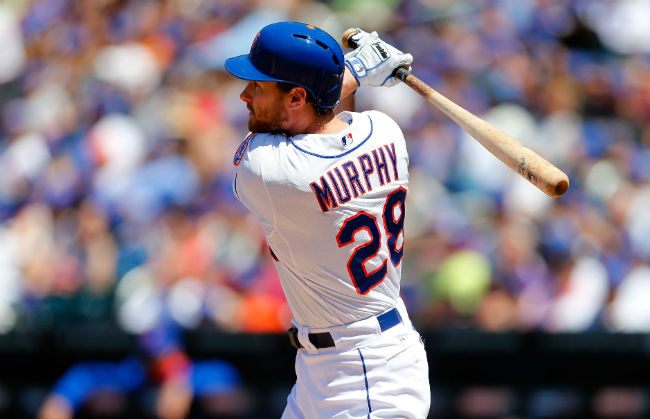Billy Bean, MLB’s first ambassador for inclusion, joined the Mets in Port St. Lucie, Fla. on Tuesday to participate in team workouts and promote acceptance among the players. This was an idea Mets general manager Sandy Alderson approached Bean with back in November at a meeting with all the general managers.
Alderson felt that having Bean with the players on the field would reach them in a unique way and drive his message home first-hand.
Bean played in the league for three teams in his career from 1987 to 1995, and he came out publicly in 1999. His memoir Going the Other Way: Lessons from a Life In and Out of Major League Baseball was published in 2003.
After he was announced as the new inclusion ambassador, Bean had this to say about his role:
“I don’t want to change baseball. I don’t want players to feel uncomfortable,” he said. “I don’t want them to think that we’re trying to force them to say or do or act or be something they’re not. It’s just a matter of whoever it affects, they are role models. Especially now, it’s an instant world. With the way everyone’s on Twitter. Just to be more cautious and understanding and maybe once they’re exposed to the resources, they’ll think differently.”
After his time on the field in Port St. Lucie, Bean’s words clearly resonated with some of the Mets players.
“In my opinion, nobody should be run out of a game or doing something that they’re good at based on something that doesn’t matter out on the field,” Mets outfielder Michael Cuddyer said, according to NJ.com.
But the comments that drew the most attention from Tuesday were from second baseman Daniel Murphy, who said he was ready to play with an openly gay teammate, but as a devout Christian, he disagreed with the “lifestyle.”
Via NJ.com:
“I disagree with his lifestyle,” Murphy said. “I do disagree with the fact that Billy is a homosexual. That doesn’t mean I can’t still invest in him and get to know him. I don’t think the fact that someone is a homosexual should completely shut the door on investing in them in a relational aspect. Getting to know him. That, I would say, you can still accept them but I do disagree with the lifestyle, 100 percent.”
[…]
“Maybe, as a Christian, that we haven’t been as articulate enough in describing what our actual stance is on homosexuality,” he said. “We love the people. We disagree [with] the lifestyle. That’s the way I would describe it for me. It’s the same way that there are aspects of my life that I’m trying to surrender to Christ in my own life. There’s a great deal of many things, like my pride. I just think that as a believer trying to articulate it in a way that says just because I disagree with the lifestyle doesn’t mean I’m just never going to speak to Billy Bean every time he walks through the door. That’s not love. That’s not love at all.”
Murphy tried to clarify his comments later to Andy Martino of the New York Daily News, and the two had a back and forth:
Doesn’t he realize that gay people are hurt by the term “lifestyle,” and the implication that their orientation is a choice?
“You and I have a disagreement,” Murphy says. “That’s why we’re having a conversation right now. And I completely understand why someone who believes it is not a choice, that you’re born with it, would take issue with my beliefs, that it is a lifestyle.”
But if he had an openly gay teammate, would it be enough to hear that Murphy “accepted” him?
“I feel like acceptance, embracing — that falls short. You understand what I’m saying? I love this person. The same way I love my wife, even though I don’t always agree with everything she does, I love her. I can love a teammate, even though I disagree with the choices he makes.”
MLB Network aired a special on Billy Bean in February and focused on the difficulty he faced in hiding his sexuality from his team. His teammates mentioned how they had no idea just how much his secret was eating away at him and affecting his play. Bean discussed how, when he was playing, he was worried about whether or not the world would reject him if people found out.
No player in any sport or profession should have to worry about that or be afraid to be themselves openly, whether it comes to religion, sexuality or anything that helps shape someone’s identity. Hopefully Bean’s efforts as an ambassador will ultimately stick with the players who need to hear and understand his story the most.







